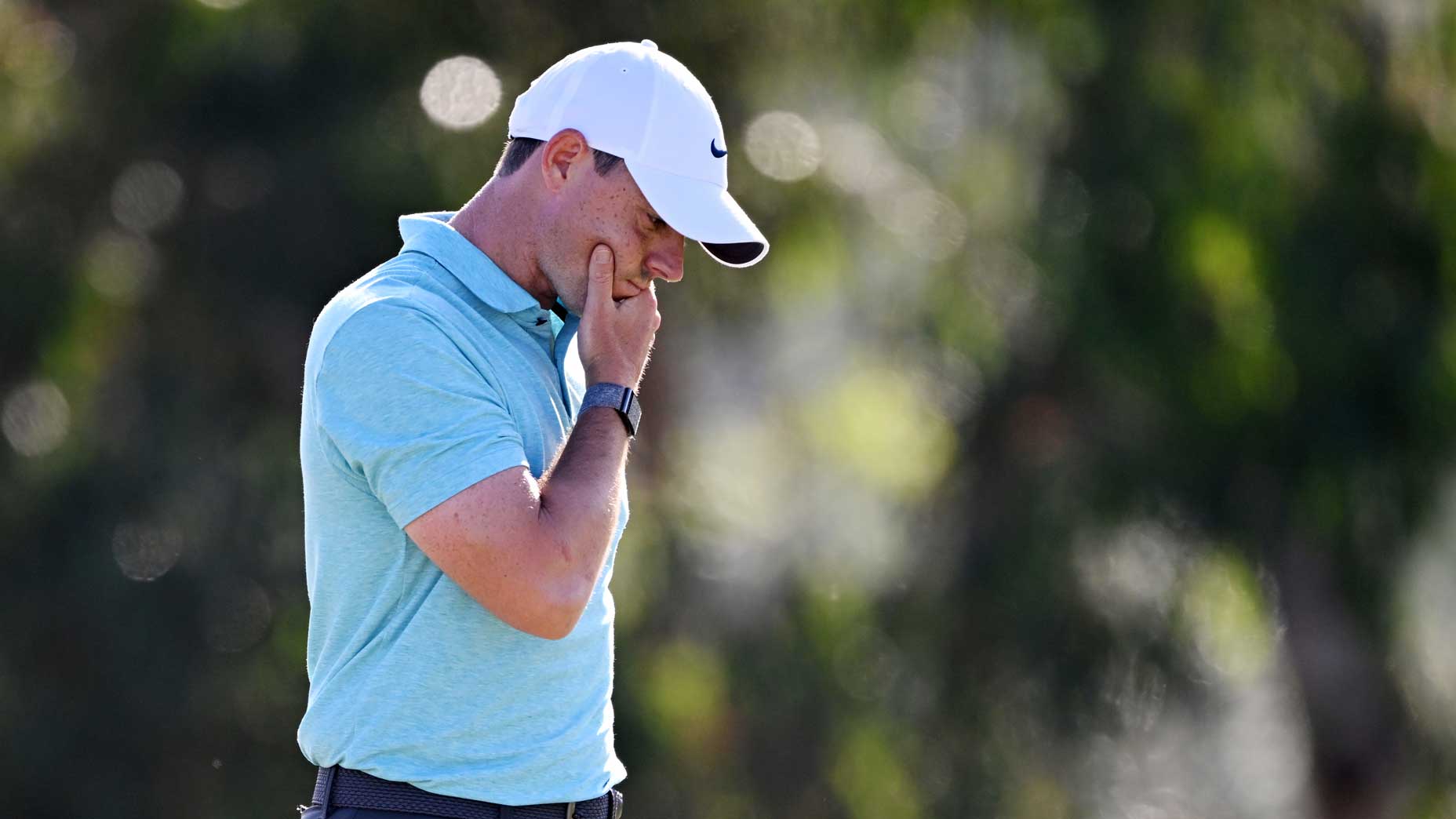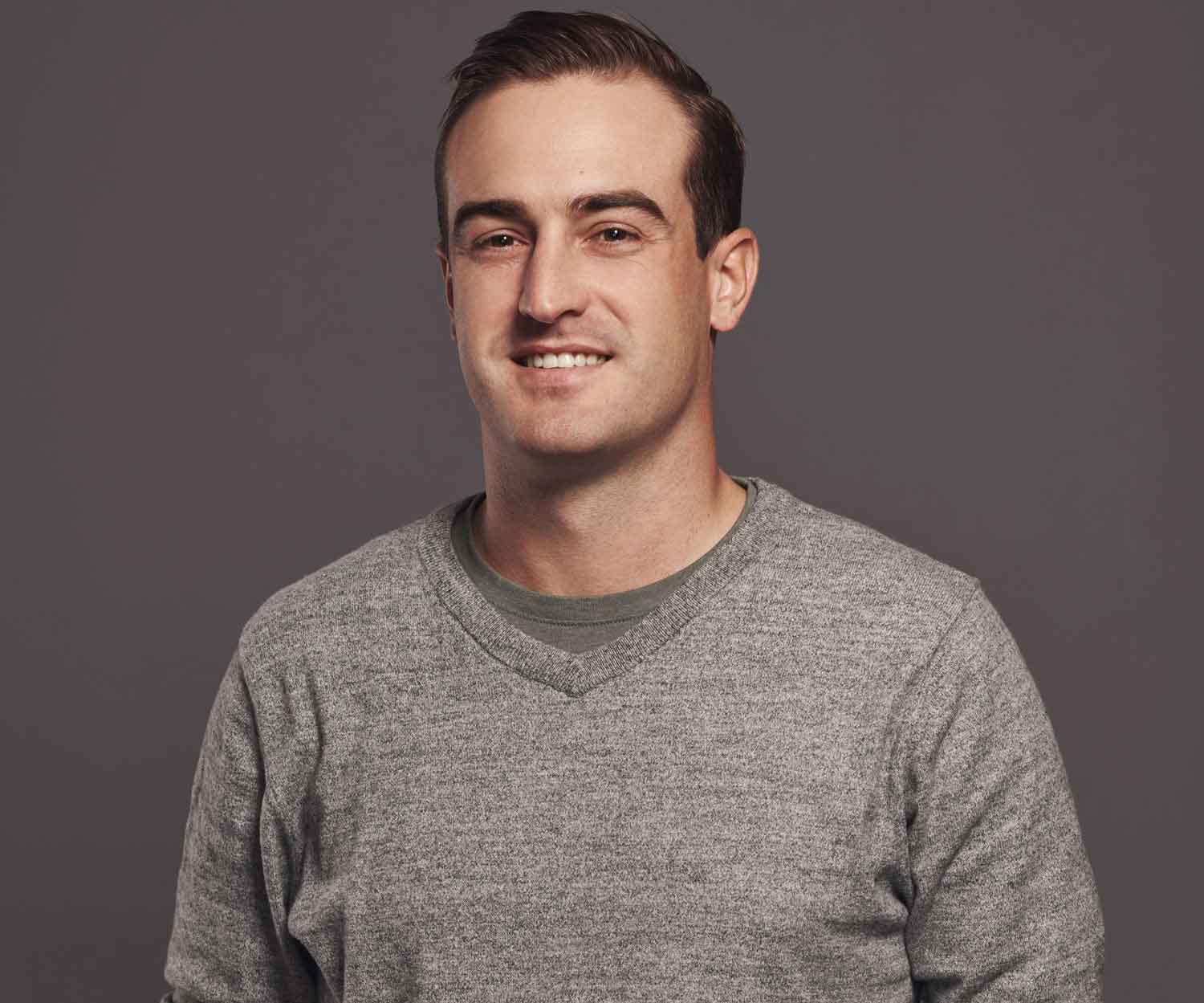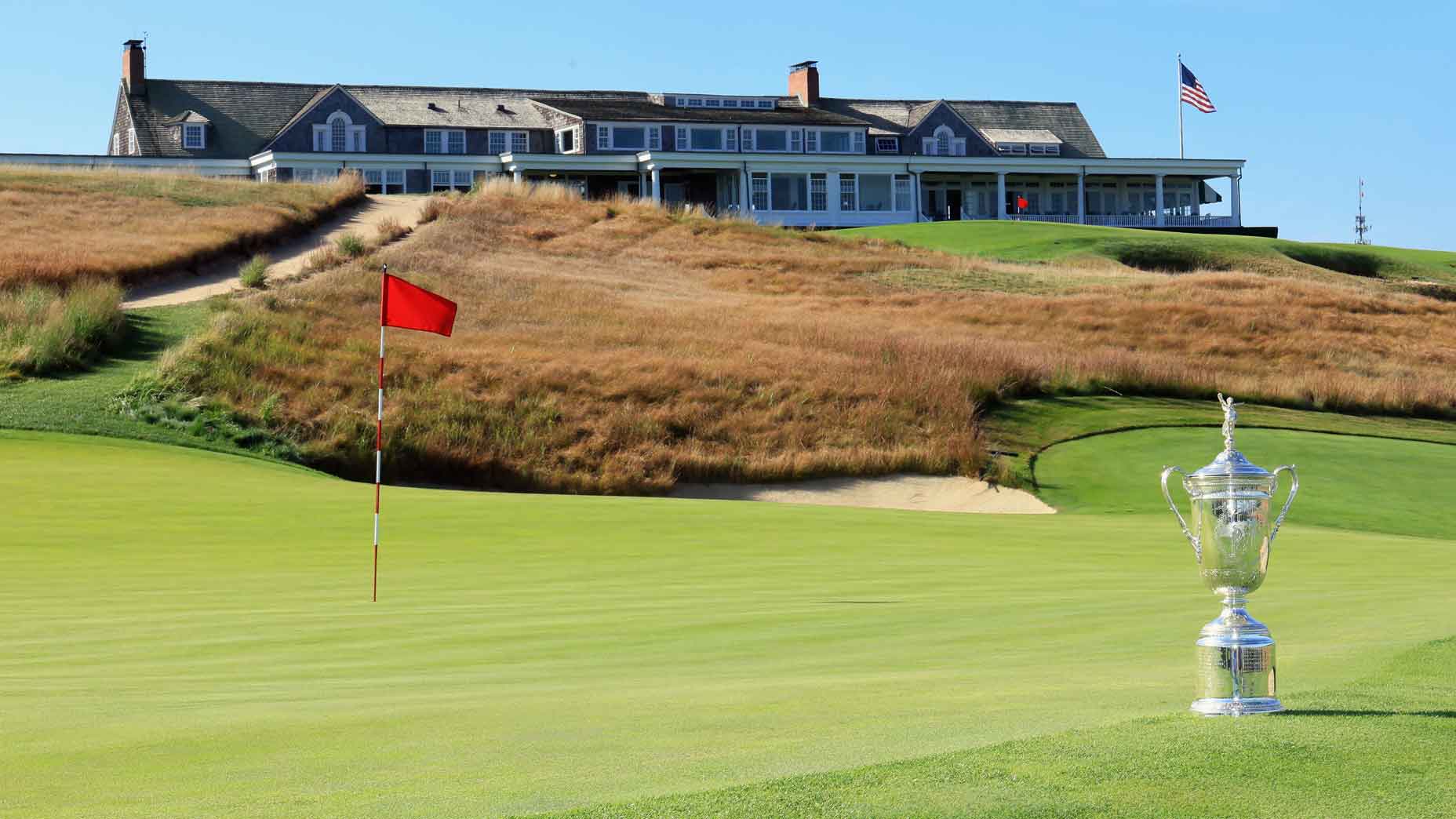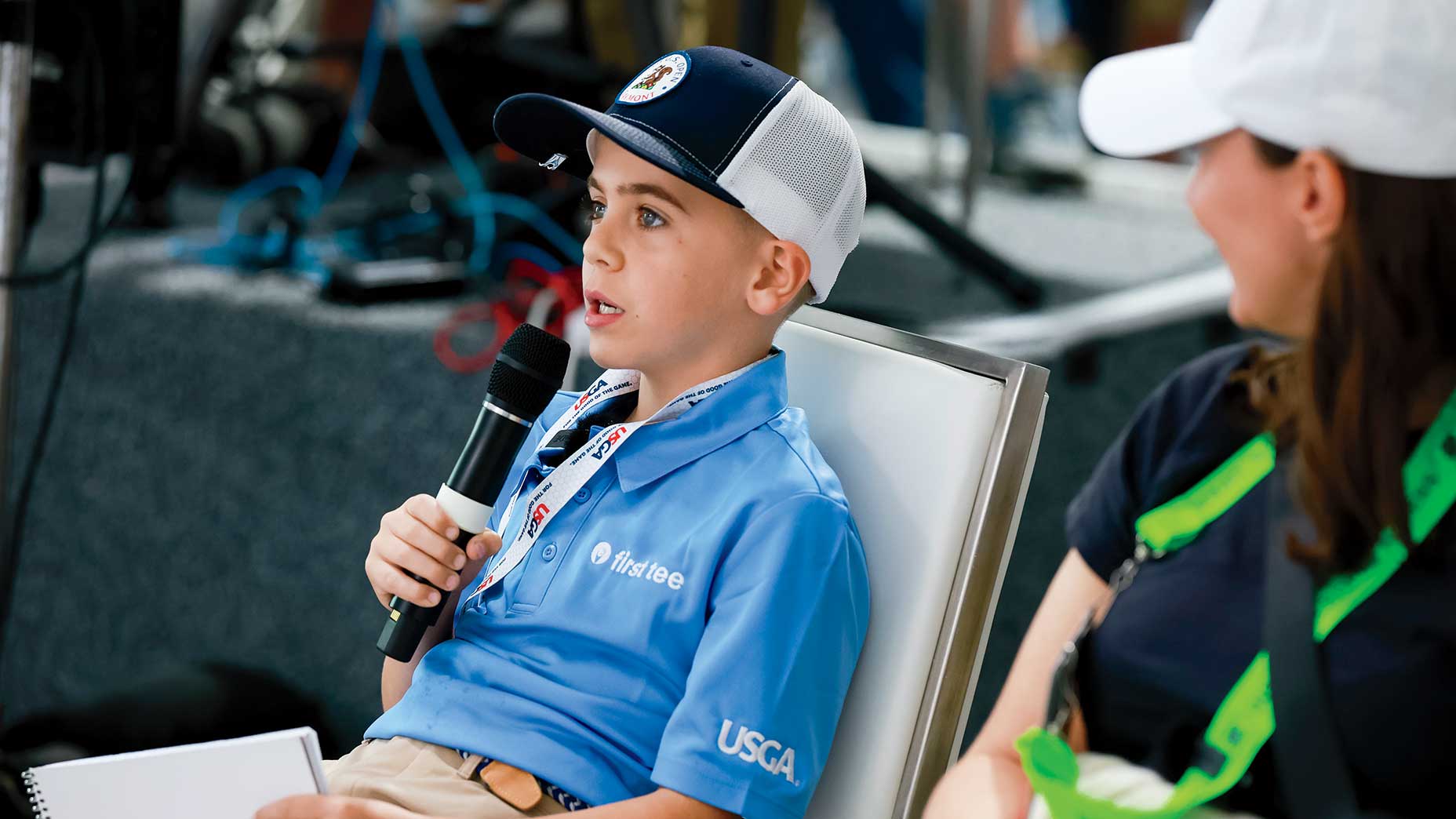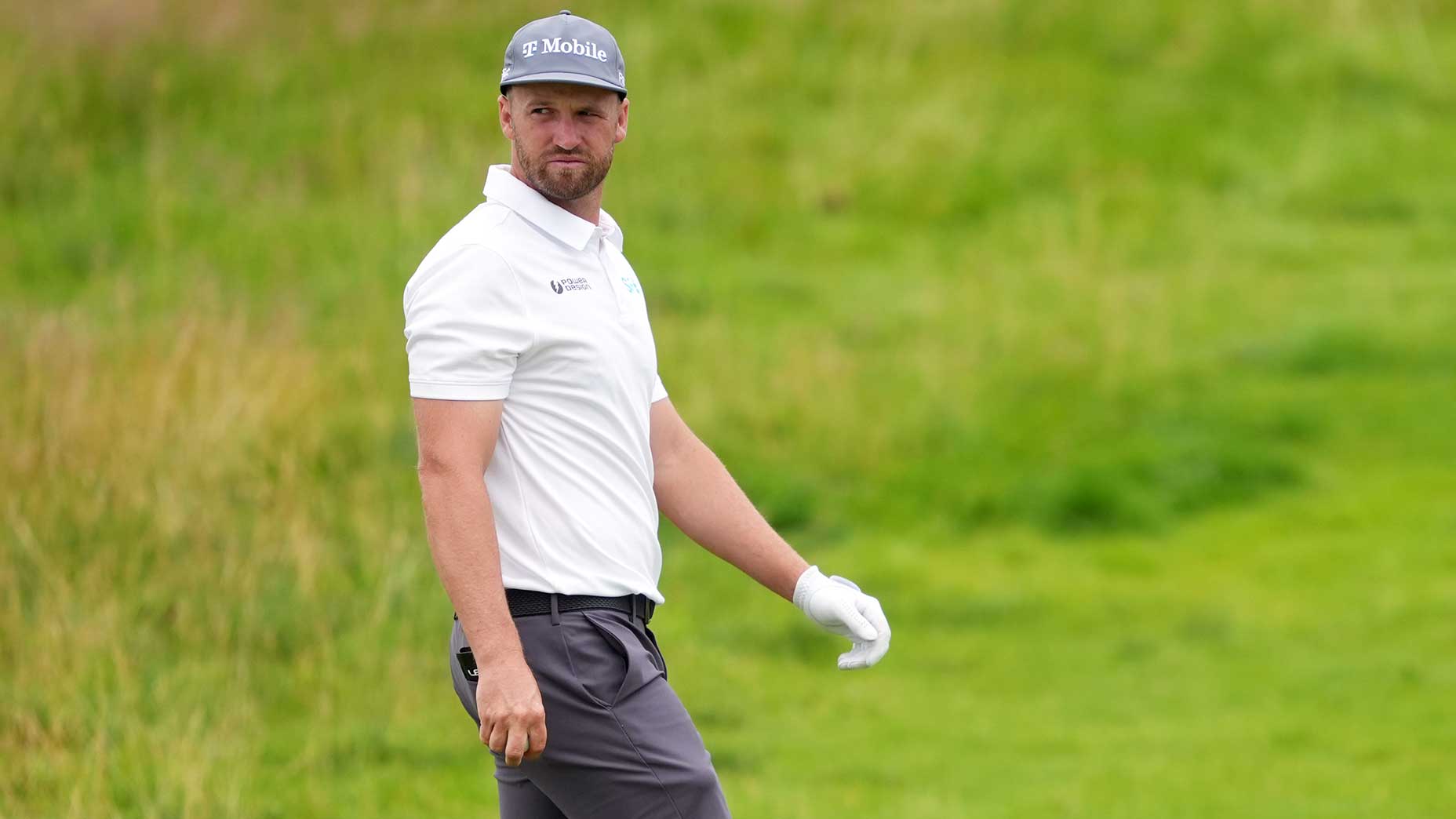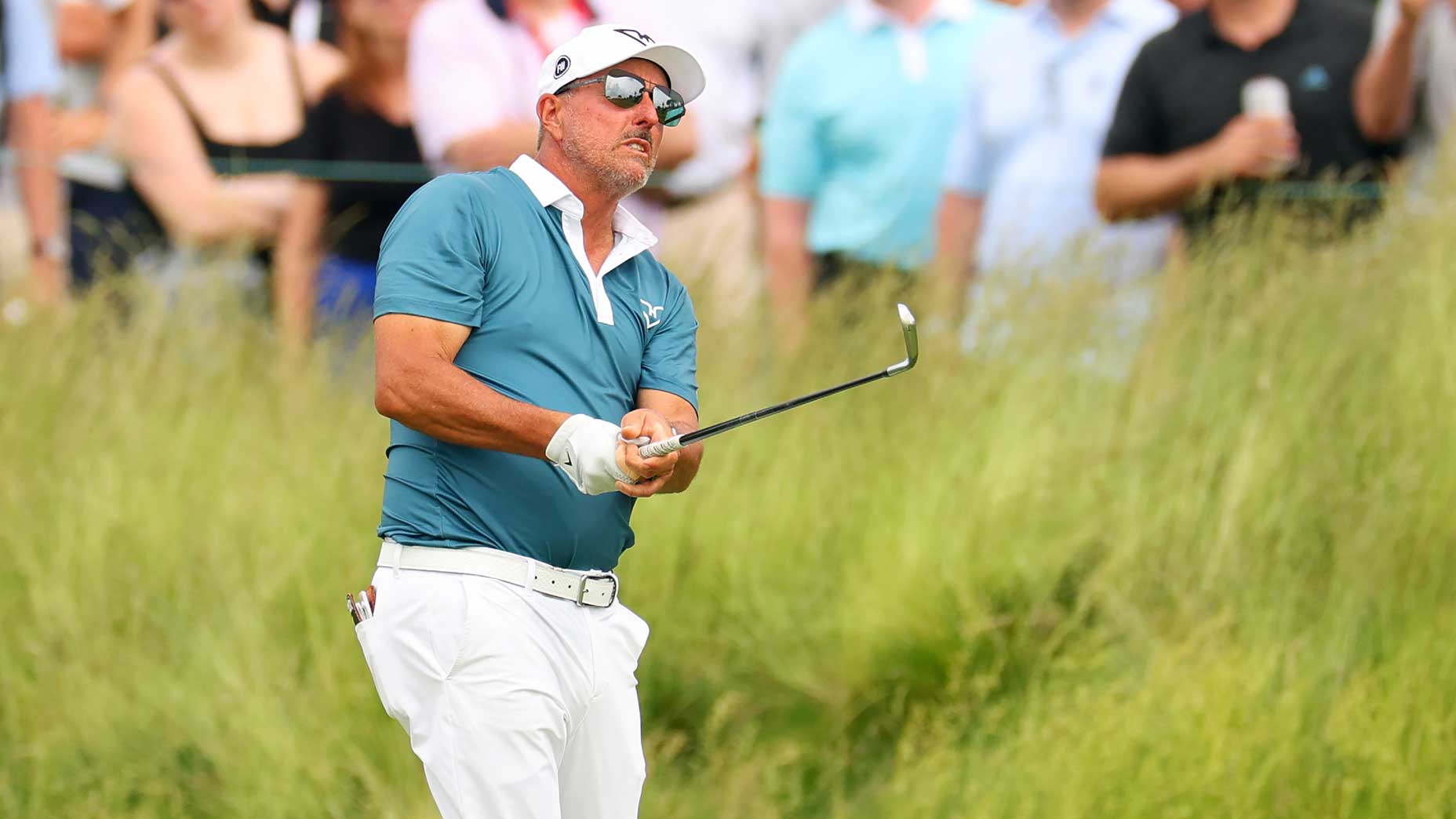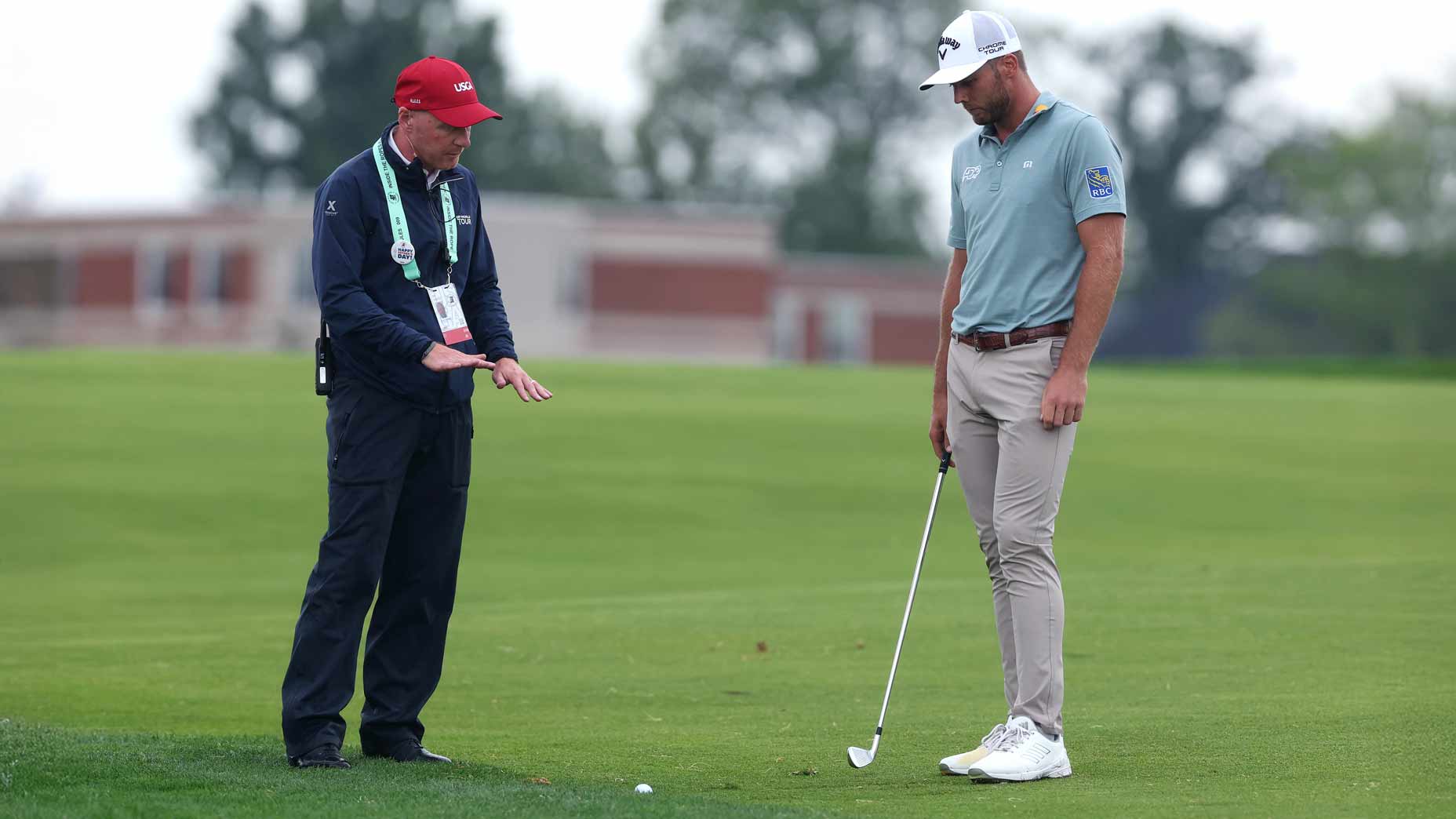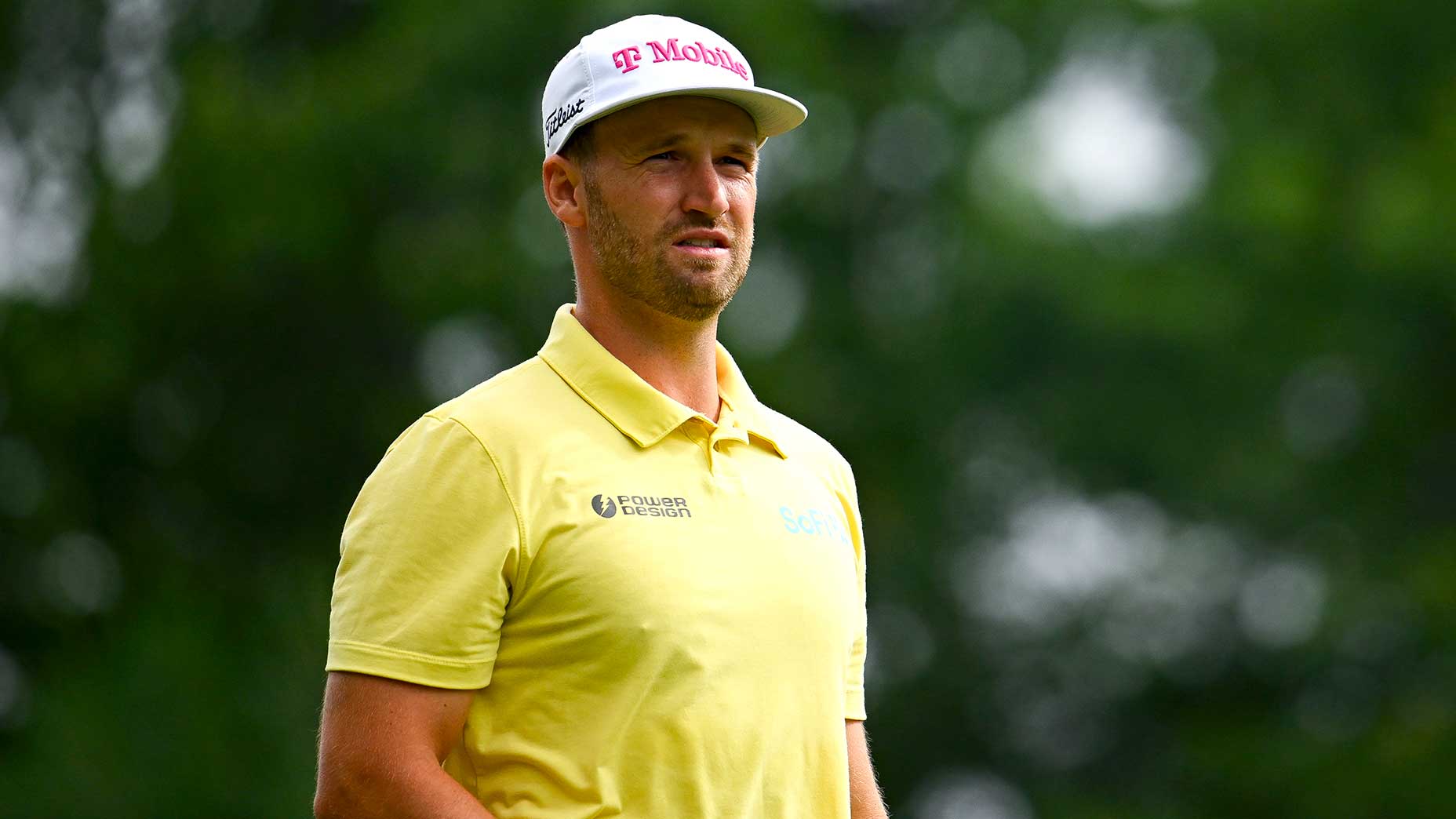LOS ANGELES — There comes a time at the end of every golf tournament when a hopeful contender becomes officially defenseless. They’ve used all their bullets, finished 72 holes, signed their scorecard and are forced into waiting. For Rory McIlroy, it started on a couch in the scoring tent.
McIlroy had bounded through the doors and into the waiting game with pep in his stride, having steeled out an even-par 70. He was one shot back, which most would call a puncher’s chance. But McIlroy didn’t get to throw a punch, which meant he had a hope-that-guy-slips-on-a-banana-peel chance, and he started to show it. In the time between entering scoring and signing his scorecard, his mood drooped. His agent patted him on the back as he plopped down onto that couch, begging the golf gods for a Wyndham Clark three-putt on the 72nd hole of the U.S. Open.
McIlroy sat between caddie and agent for just a few minutes. You wonder what those minutes are like. Do they fly by or drag on? When Clark finally made the most important stroke of his day — a brilliant lag putt from 60 feet — McIlroy was up on his feet and out the doors of the scoring area. A nearby radio signaled in all that remained for Clark: one foot, five inches. This golf tournament was cooked. Another major chance come and gone. But the waiting wasn’t over yet.
“We’ve got to wait until it’s official,” a USGA staffer said softly, holding McIlroy up. So there he stood, frozen for a few more meaningless moments. Every eye that wasn’t fixed on a television was locked on McIlroy. He held a water bottle in his right hand and stared at the ground, just listening. The quickest signal would come through the air, from the crowd on 18. When it arrived, McIlroy was held up even longer. Another 15 seconds passed until Clark’s putt actually flashed on the TV in front of him.
“Yep, that’s it,” McIlroy said, turning toward his first post-round interview. He was ready to move on.
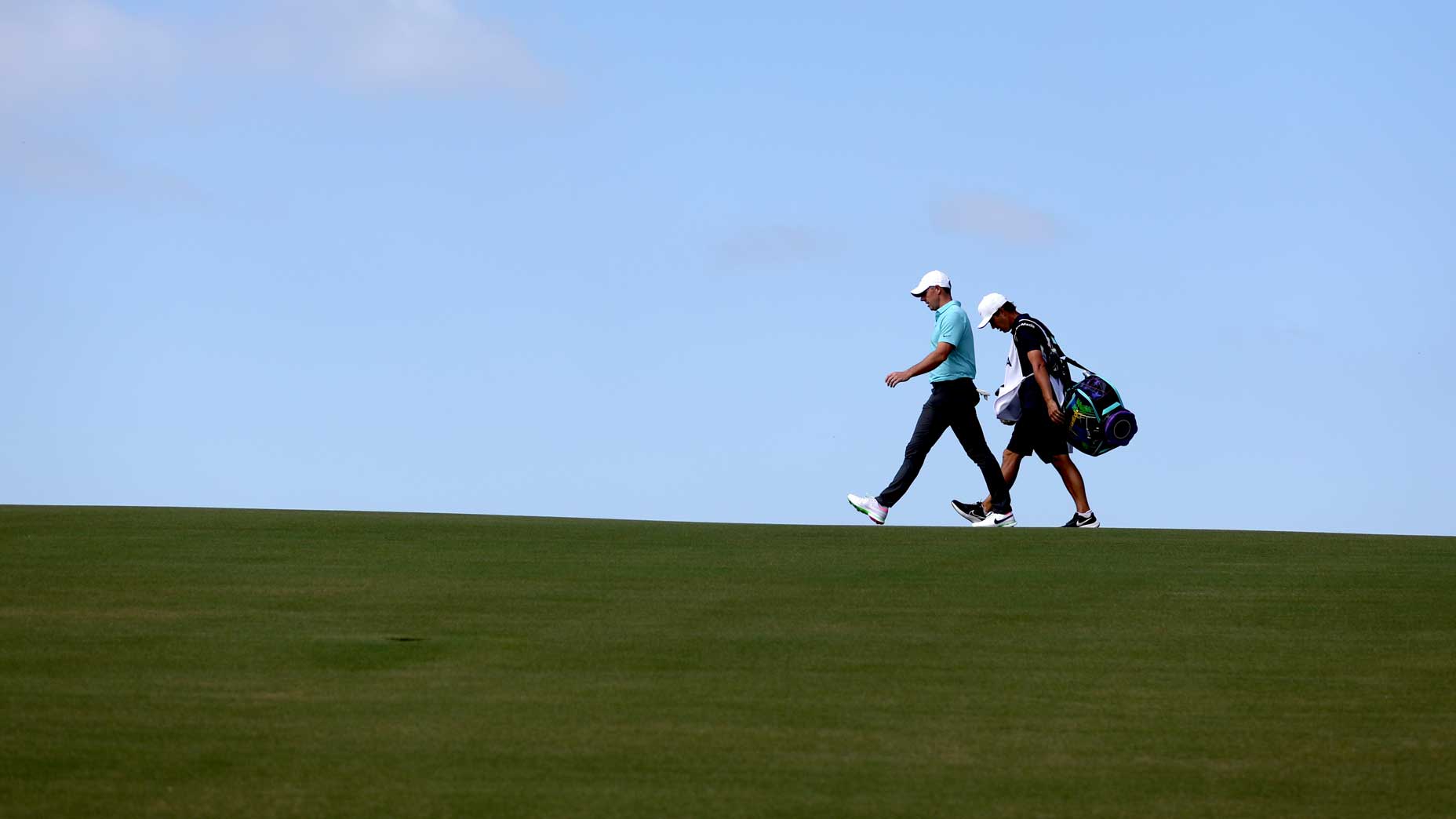
Rory McIlroy has been waiting a long time for his next major championship. His fifth major championship, if ever it comes. It’s been eight years and 10 months since that hot night in Louisville when he flexed his way to the top of the golf world. He was so excited when he did, he started a countdown from his winning press conference: 242 days until the Masters. He felt unbeatable back then, to us, to himself, and sometimes even to the rest of the PGA Tour.
You could write entire books about the last nine years of his life. Countless PGA Tour careers have begun and ended in that time. He’s seen Phil Mickelson win a sixth major, at 50 years old, at the course (Kiawah Island) where McIlroy was the betting favorite. He’s seen Brooks Koepka win five majors on his own in those nine years, leapfrogging him in the career standings. He’s seen all three of Jordan Spieth’s majors and both of Justin Thomas’ PGA Championships. He’s watched so many players of lesser ability claim one of the sport’s four greatest prizes.
So much time has passed, he admitted this week, that details of those majors he bagged in 2014 have gotten foggy. A few weeks ago he found himself watching highlights of his 2014 Open Championship win at Royal Liverpool, surprised at how many irons and 3-woods he played off the tee that week.
“It set something off in my mind about, You know how to do this. You know how to play smart,” McIlroy said Saturday night.
His latest major quest came from the penultimate pairing Sunday afternoon, one shot back of two zero-time major-winners. Both of those numbers made him a popular pick in Vegas once again. But the next four-and-a-half hours played out in an all-too-familiar way. A lot of good, not enough great. After he made birdie on the 1st hole for the fourth straight day, he failed to draw another circle on his scorecard. It felt very similar, he said, to the gut-wrenching third-place finish in St. Andrews last summer.
McIlroy holed just one putt outside five feet. He yanked a 4-footer on 8 that didn’t touch the hole. He cussed to himself when his 15-foot curler on 10 stayed out. When the same thing happened on 15, he cussed again. His four-letter word of choice starts with an F. He used it afterward when talking to his agent about the lone bogey of his day, on the par-5 14th. From 124 yards, McIlroy’s gap wedge got smothered by the wind and plunged into the native grass above a greenside bunker. When he was gifted free relief from the hairy lie, he missed a 9-footer for par. What could have been a 4 — at worse a 5 — ended up a crippling 6. A lot of good, not enough great.
What made this week different from St. Andrews was that McIlroy got chased down last summer in Scotland. Cameron Smith shot 64 at the Old Course to run away and hide. But this tournament, eight time zones west, was there for the taking all day long. Clark dropped shots on the 15th and 16th, energizing the tame LA crowd with the prospect of a McIlroy major. Rory didn’t need to scan the leaderboards because updates were screamed at him every few minutes. Fans barked out Clark’s bogey on 15. They shouted about his bunkered tee shot on 16 and celebrated his missed par putt when he reached the green.
For about 15 minutes, the golf course believed in some McIlroy magic. That happened at St. Andrews, too. They shouted out his extremely chant-able name from both sides of the 18th hole Sunday evening. That happened at St. Andrews, too. But when his approach turned into a 41-foot birdie putt, he had done just as many hopeful contenders do: he ran out of bullets. His fate was entirely in Clark’s hands.
“You’re rooting for one guy, and that guy is yourself at that point,” McIlroy said. “Yeah, I guess you’re just hoping for the other guy to slip up or make a mistake or give you a glimmer of hope.”
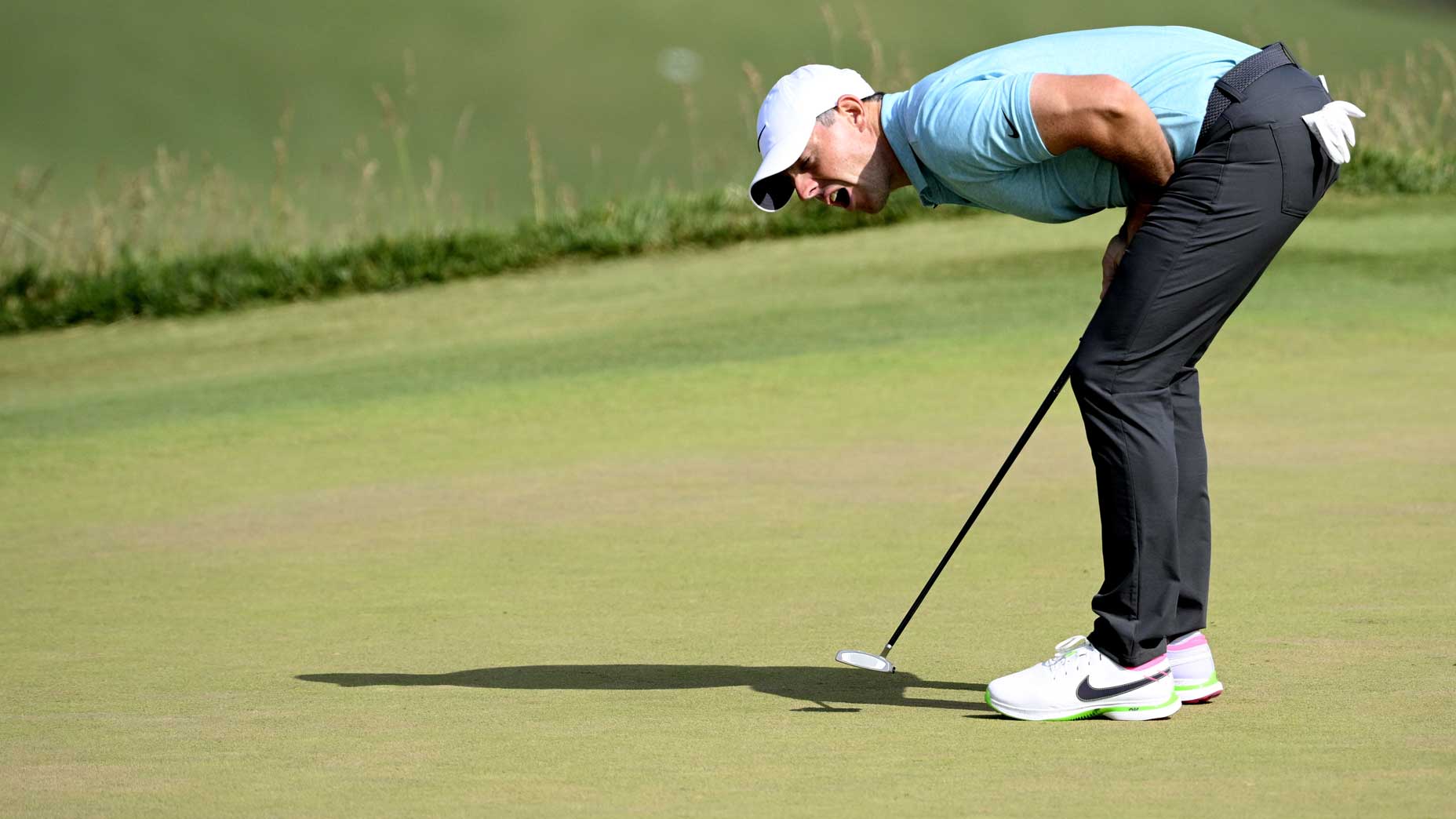
McIlroy’s week may have finished with a similar result to St. Andrews — he even shot the same final-round score — but it felt decidedly different. The recent news of the PGA Tour’s partnership with the Public Investment Fund of Saudi Arabia undercut McIlroy in such a way that made him feel like “a sacrificial lamb.” Those are his words, and they hurt when you hear them. He responded at the Canadian Open with a press conference he called the most uncomfortable feeling of his year; he tied for ninth and arrived in Los Angeles with a newfound, restricted media presence. He canceled his pre-tournament press conference, intimating that he had said all he needed to say, then shot an opening 65 and refused to talk Thursday night.
When it’s going good, McIlroy seems to genuinely enjoy his time at the lectern. But when life gets weird, as it has the last 12 days or so, time in front of a microphone only serves to distract. On Friday, after a second-round 67, his press session was limited to five questions. On Saturday, just four. It was communicated to USGA officials that if a LIV Golf question would be raised, it would be the last question he listened to.
Did this approach improve his chances this week? We can’t know, but he lost to just one man. Will it stick? We’ll have to see. McIlroy teased a more selfish mentality in Canada, saying last year’s win was “for a few other things” and that “this one, this year, if I were able to get over the line, will be solely for me.”
You get the sense McIlroy might feel this way into July, when the next major arrives. He has the Travelers Championship this week, then the Scottish Open two weeks after that. He was asked when the countdown to Royal Liverpool begins. He paused for a look at his watch. “Three minutes ago, I guess.”
This makes him like any other elite pro. One major ends and the next one becomes top of mind. Justin Thomas bombed out of this week’s tournament — beating just a handful of players — but quickly reasoned himself some room for optimism. “I have another major left,” he told Golf Channel. “If I go win the British Open, nobody even remembers that I’ve missed the cut by a zillion here.”
Jon Rahm was nowhere near contending in this tournament but claimed to have found something on the range Sunday morning. He shot 65 and smiled for the first time all week. After the Travelers, he’ll take a couple-week vacation and put everything into Hoylake prep. Scottie Scheffler may have been undone by his putting once again, but he’s got a new putter in the bag, and for three rounds it was a pal. His Tiger-esque season needs a major championship if we’re going to remember it forever.
For McIlroy, the biggest difference between Sunday in LA and 11 months ago in St. Andrews was how convincingly he left things. When asked if it was exhausting to answer questions about major disappointment time after time, he said yes, “It is. But at the same time, when I do finally win this next major, it’s going to be really, really sweet. I would go through 100 Sundays like this to get my hands on another major championship.”
Those were the final 36 words of on-the-record Rory in Los Angeles. They made you think about how many Sundays he’s gone through already. At the end of that Sunday last July, McIlroy buried his head and some tears into the shoulder of his wife, Erica, as they drove off in a golf cart.
This Sunday, his face shot upward when he found Erica at the entrance of a VIP tent on the back side of the clubhouse. LACC members, their guests, tournament staff and volunteers began cheering for McIlroy one final time, an ovation that faded to the background when he buried his head into Erica’s shoulder once again. A long, emotional hug ensued, but no tears this time. This one was never going to feel quite like St. Andrews. The McIlroys proceeded to their courtesy vehicle for some final hugs with friends and a photo with the security staffer who flanked their man all week. Rory buckled into the driver’s seat and began driving to whatever was up next. About 50 yards up the drive, his caddie Harry Diamond walked alongside a confidant, clearly still working through the result.
“Not a putt would drop,” he said, shaking his head. “Not even one.”
